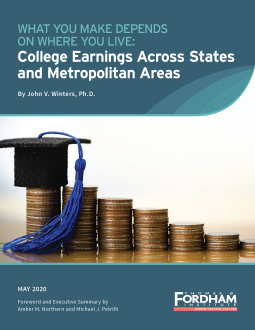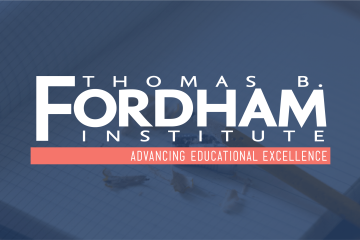Deciding whether to invest time and money in higher education is among the most important decisions that a young adult can make. The evidence is clear that workers who went to college earn higher incomes, on average, than those without a post-secondary degree. But considering the variations in different geographic areas, do workers in some parts of the country do about as well with two-year degrees as those with bachelor’s degrees?
This first-of-its-kind study looks beyond the national averages, comparing mean earnings for full-time workers with different levels of education in all 50 states and D.C., in over 100 metro areas, and in rural America using individual-level data for the years 2015 through 2017 from the American Community Survey (ACS).
Authored by Iowa State University’s John Winters, What You Make Depends on Where You Live: College Earnings Across States and Metropolitan Areas examines three key questions:
- How do college earnings premiums vary across states and metropolitan areas?
- How do earnings and college earnings premiums vary by size of metropolitan area and degree of urbanization?
- How do college earnings premiums vary by race and ethnicity?
The study yields five key findings. Among them is that, nationally, bachelor’s holders strongly out-earn workers with less education. Yet there’s significant variation across the country, with college earnings premiums that are substantially greater in large cities and urbanized areas, and smallest in rural America.
It’s true that what you make depends on what you know and what credentials you carry. But it also depends on where you live.
To see the college earnings premiums in your area, select your city or state in the data tool or table below.
Note: Based on the author’s calculations from the ACS. The sample is limited to full-time, full-year workers, ages thirty to fifty-nine, who were born in the U.S.
*See also Idaho's Education Earnings Gap by John Winters, Ph.D.




